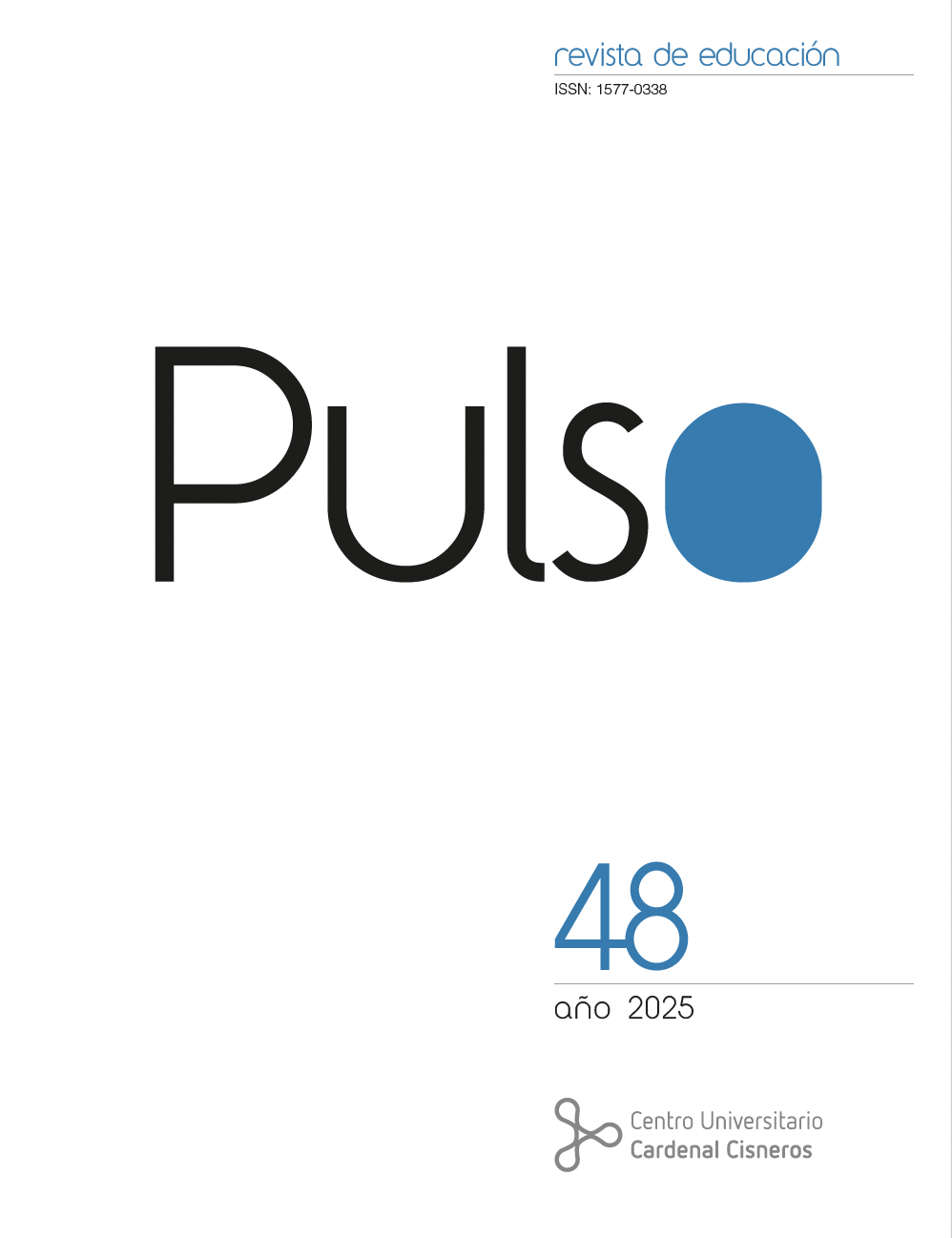Teaching the Rules of the Game
The Purposes and Principles of UK Foundation Programmes. An interview with Steve Leech
DOI:
https://doi.org/10.58265/pulso.8346Keywords:
Foundation Programmes, Widening Participation, Access to Higher Education, Social Justice in EducationAbstract
This article examines the objectives and principles of UK university foundation programmes, with a particular focus on Durham University’s Foundation Programme. Through an in-depth interview with Steve Leech, Head of Academic Transitions at Durham, the article explores how foundation years provide a route into higher education for students from under-represented groups and disadvantaged backgrounds. It highlights the multiple roles of foundation programmes in promoting social justice while also meeting institutional and governmental goals for widening participation in higher education. Leech outlines four pillars – epistemological maturity, metacognition, self-regulation, and self-efficacy – which underpin the programme’s approach to preparing students to succeed at university. The article also discusses the challenges facing foundation programmes in a market-driven educational landscape, while reaffirming their transformative potential for students. Durham’s programme is presented as a case study of how foundation programmes can empower learners by explicitly teaching the “rules of the game” in higher education.
Downloads
References
An Act to enable the Dean and Chapter of Durham to appropriate Part of the Property of their Church to the Establishment of a University in connexion therewith for the Advancement of Learning (1832) c. 19. Durham University.Available at: https://books.google.co.uk/books?id=FtAQAAAAIAAJ&pg=PA389&redir_esc=y#v=onepage&q&f=false
Bandura, A. (1994). Self-efficacy. In V.S. Ramachaudran (ed.) Encyclopedia of human behavior Vol. 4. Academic Press, 71-81.
Baxter Magolda, M.B. (1992). Students’ epistemologies and academic experiences: implications for pedagogy. The review of higher education, 15(3), 265-287.
Bloom, B.S. (Ed.). Engelhart, M.D., Furst, E.J., Hill, W.H. and Krathwohl, D.R. (1956). Taxonomy of educational objectives: The classification of educational goals. Handbook 1: Cognitive Domain. David McKay Company.
Bourdieu, P. (1986). The forms of capital. In J. Richardson (ed.) Handbook of Theory and Research for the Sociology of Education. Greenwood, 241-258.
Chick, Nancy L.; Karis, Terri; and Kernahan, Cyndi (2009). Learning from Their Own Learning: How Metacognitive and Meta-affective Reflections Enhance Learning in Race-Related Courses. International Journal for the Scholarship of Teaching and Learning: Vol. 3 (1), Article 16. https://doi.org/10.20429/ijsotl.2009.030116
Durham University. (2020). Access and Participation Plan 2020/21 to 2024/25. Available at: https://durham.ac.uk/media/durham-university/about-us/environmental-social-and-economic-sustainability/reports/Access-and-Participation-Plan-2020-21-to-2024-25.pdf (Accessed: 30 June 2025).
Durham University. (2025). Foundation Courses for UK Students. Available at: https://www.durham. ac.uk/departments/centres/academic-development/study/foundation/ (Accessed: 1 July 2025).
FETL (Further Education Trust for Leadership) (2018). Reimagining lifelong learning: A brief history of an idea. FETL.
Freire, P. (1972). Pedagogy of the oppressed. Penguin.
Krathwohl, D.R. (2002). A revision of Bloom’s taxonomy: an overview. Theory into practice, 41(4), 212-218.
Leech, S. (2024). Introduction. In S. Leech & S. Hale (eds.) Foundation Years and Why They Matter. Emerald Publishing Ltd, 1-17.
McCormick, C.; Dimmitt, C.; Sullivan, F. R. (2013). Chapter 4: Metacognition, Learning and Instruction. In W.M. Reynolds (eds.) Handbook of Psychology: Volume 7 – Educational Psychology. Wiley, 69-97. https://doi.org/10.1002/9781118133880.hop207004
Office for National Statistics (2023). Towns and cities, characteristics of built-up areas, England and Wales: Census 2021. Available at: https://www.ons.gov.uk/peoplepopulationandcommunity/housing/articles/townsandcitiescharacteristicsofbuiltupareasenglandandwales/census2021 (Accessed: 1 July 2025).
Zimmerman, B. J. (2010). Becoming a Self-Regulated Learner: An Overview. Theory into Practice, 41(2), 64-70.
Published
How to Cite
Issue
Section
License
Copyright (c) 2025 Pulso. Revista de educación

This work is licensed under a Creative Commons Attribution-NonCommercial-NoDerivatives 4.0 International License.
This journal offers immediate open access to its content based on the idea that offering readers free access to research favours a global exchange of knowledge.
Papers are published in the electronic version of the journal under a Creative Commons License: Attribution-NonCommercial-No derivatives 4.0 International
Authors are allowed and encouraged to promote the post-print version (reviewed and accepted for publication version) of their work online before publishing them. This favours their earlier circulation and dissemination and thus a possible increase in their citation and reach among the academic community.














